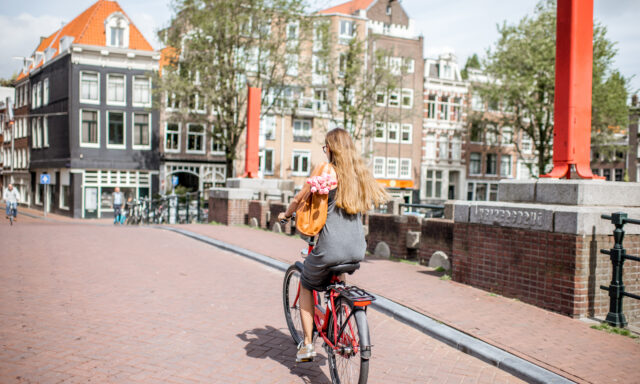Moving to the Netherlands from your home country will always give rise to challenges. However, if you happen to be a non-EU citizen, you will be facing more obstacles than those with EU citizenship. First and foremost, you need a valid residence and work permit (visa) in order to be able to live and work in the Netherlands. As of 2021, this rule also applies to British citizens. The Dutch government offers several types of visas, but this article focuses on the Orientation year highly educated persons residence permit (Zoekjaar hoogopgeleiden), also more commonly known as the orientation (search) year visa.
Who can obtain the orientation year visa?
The orientation year visa is intended primarily for young graduates. Holders of this visa have the right to live and work in the Netherlands without restrictions, for a period of 12 months. However, there are certain conditions on who can apply for it.
You are eligible to apply for the search year visa if in the previous 3 years:
- You completed a bachelor’s or master’s course of study in the Netherlands.
- You completed at least one academic year of a post-Masters programme in the Netherlands
- You are a holder of a Master’s degree from one of the Erasmus Mundus Master courses
- You are a holder of a Masters or a PhD degree from one of the top 200 educational institutions in the world. Please, bear in mind that there are additional requirements for this condition, such as proof of language skills.
These are the most common cases. Amongst other things, you can find the conditions of who is eligible for the visa here.
The application processes
Once you have established that you are eligible to apply for the orientation year visa, you can start the application process. You will need to fill in the application form and provide additional documents. The Immigration and Naturalisation Service (IND) accepts only documents in Dutch, English, German or French, so in the event that your original documents are in a different language they will need to be translated and authorised by the competent authorities in the country of issue. It usually means that the court would have to issue the apostille seal on the translated documents. Note that you will have to pay a fee. The cost of the search year visa is currently 192 EUR. However, there are exceptions: the fee for Turkish citizens is lower, and citizens of Israel and San Marino are not required to pay the fee.
If you are already in the Netherlands, you can submit your application online or make an appointment at the IND and submit your documents personally. If you live outside the Netherlands, you will need to submit your application at the Dutch embassy or the consulate. Make sure that you submit certified copies of your documents and not the originals. Next, you should receive an official letter with the instructions regarding your payment.
Bear in mind that other conditions may apply to Turkish citizens.
Decision
The IND can take up to 90 days to make a decision. However, if you submit the application without errors, you may get an answer much sooner, within a week or two. In case of a negative decision, you can always ask for a review.
If a positive decision has been made, you have three months to collect your visa. You will have to make an appointment in order to do that.
Depending on your situation, the orientation year visa will start on the day you receive it, when your previous residence permit expires or when you arrive in the country. If you had a student visa and applied for the orientation year visa, your new visa will start on the day you collect it. It does not matter if you applied months before the expiration of the previous visa! Thus, it is important to carefully assess the right time to apply.
You should not apply too late as the decision can take some time and may result in a gap during which you do not have a residence or work permit. This can have legal consequences. However, if you apply too early, you will shorten the time that you are legally permitted to stay in the country. You should also keep in mind that your passport has to be valid for a minimum of 6 months after you receive your visa.
Bear in mind that due to the COVID-19 measures, IND had to adapt work hours and methods. You can find the latest information and frequently asked questions regarding the current situation here.
You obtained the orientation year visa, what next?
Congratulations! You now have a valid residence and work permit for the next 12 months that allows you to apply for jobs and internships, be a freelancer or start your own company.
If you are planning to apply for jobs, it is important that you inform your potential employer about your visa situation. Gather as much information as you can and let them know that you are fully aware of your legal status. Some employers and hiring managers are not familiar with the requirements of each visa and you may find yourself in a situation explaining the visa requirements and what you plan to do once your current visa expires.
What to do when the search year visa ends?
There are several options if you want to stay in the Netherlands after your orientation year visa expires. One of the common paths is to get a highly skilled migrant visa.
If you consider this option, you need to be aware that only your employer can apply for the highly skilled migrant visa; you cannot do this yourself. Therefore, you need to make sure that the company you want to work for is open to considering workers from outside the EU. Look at the companies that are on the list of recognized sponsors. These companies have previously hired someone from outside the EU and have provided work permits for them. This means not only that they could be willing to apply for your visa as well, but also that they are familiar with the procedure which makes the application process easier. Bear in mind that becoming a sponsor is not free of charge and the employer needs to fulfill certain criteria so it is easier to find a company that is already on the list.
One of the biggest advantages of the orientation year visa is linked to the salary requirements of the highly skilled migrant visa. Namely, the minimum salary that the employer has to pay is dependent on whether the employee previously had an orientation year visa or not. For holders of the search year visa, the minimum salary currently stands at 2,497 EUR. For someone without an orientation year visa, the minimum required salary is significantly higher.
However, the downside is that in this case, once you obtain the highly skilled migrant visa, the 30% ruling does not apply to you. Therefore, depending on your field of expertise, skills and years of experience, you might need to rethink what the best option is for you. The search year visa mainly helps young graduates to have easier access to entry-level positions in the Dutch labour market.
Pros and cons
The process of obtaining the orientation year visa can be a long and tedious process. You need to meet certain criteria, fill in the application form and attach the correct, authorised documents, all of which do not come free of charge.
However, the search year visa offers significant benefits. Not only does it allow you to apply for jobs or even start your own company without any restrictions for the period of 12 months, but it can also make the transition to the next work permit easier.
Finally, I hope that this article helps to answer any questions you may have about the orientation year visa. If you have some queries that we have not covered, please take a look at the official IND page or their Frequently Asked Questions page.






